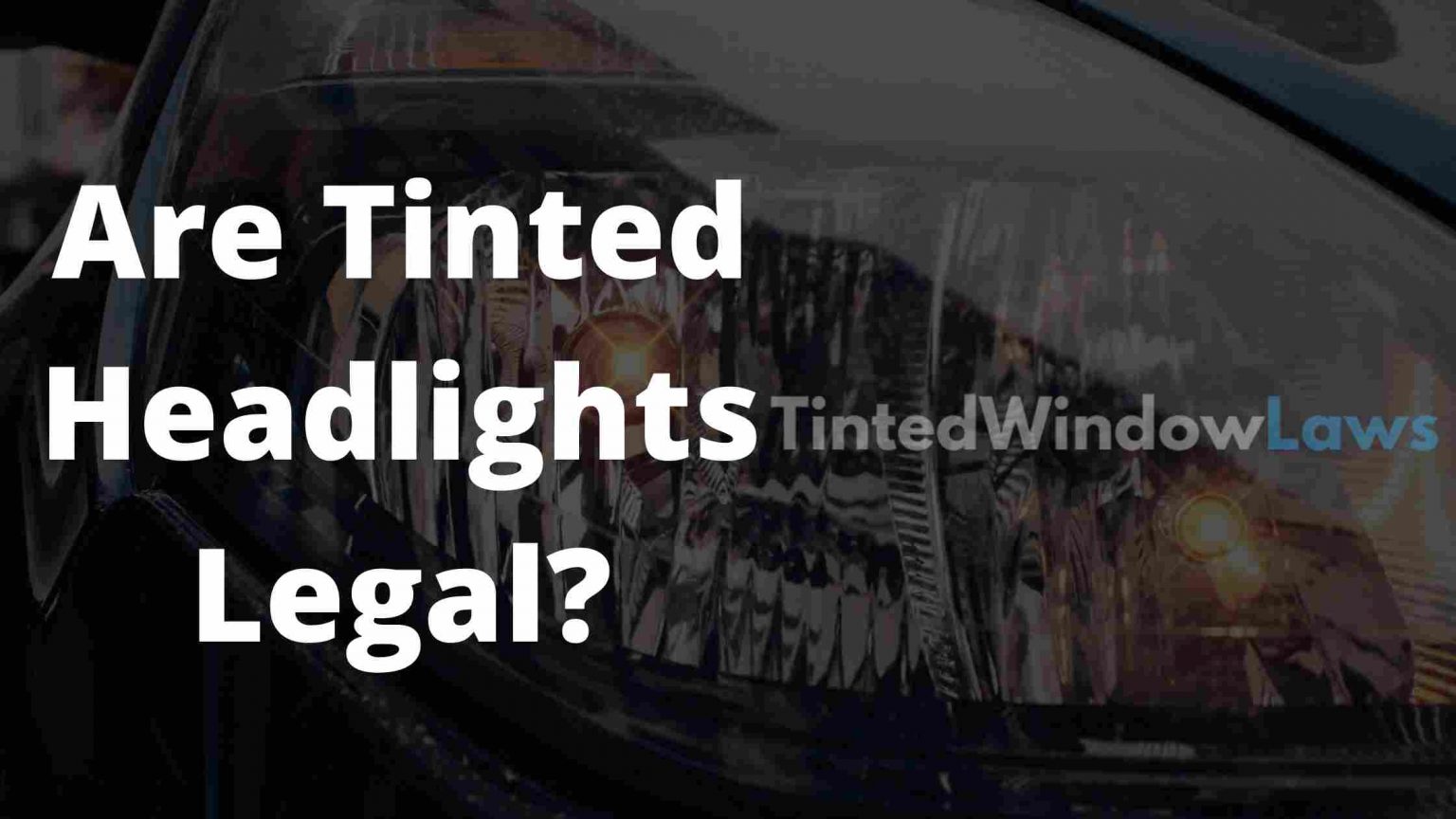These days we see people getting their car headlights tinted, smoked headlights, and much more. But the big question is are they legal?
Let’s find out whether tinted headlights are legal or not.
Also Read: How To Remove Window Tint?
Are Tinted Headlights Legal?
Having tinted headlights on your cars might be legal in some states but illegal in other states of the USA. The legality of something depends on the laws enacted in that state or country. Now, the US doesn’t have any federal laws regarding the legality or illegality of tinted headlights.
It depends on state to state whether that particular state’s law allows tinted headlights or not. There are some states where getting the headlights tinted or sprayed is restricted and banned.
Getting the headlights tinted, painted, or sprayed is an illegal task for which you might have to pay a fine or even be taken to the police station depending upon which state you’re living in.
Legality Of Tinted Headlights In The US
Some states such as Arizona, Georgia, Maryland, Colorado, and many more do allow tinting of headlights but only after fulfilling some necessary conditions. As mentioned above, the legality of tinted headlights differs from state to state depending upon the laws made by the state government.
Some states in the US impose a total ban on tinted headlights whereas some states have laid down the limits up to which the people can get their car’s headlight tinted.
In most jurisdictions, you may tint the headlights of any display vehicle or custom automobile as long as it’s licensed and registered as such. You’ll need to verify the legislation and, in certain jurisdictions, undergo a vehicle fitness and assessment if you want to get the headlights of your daily use vehicle tinted.
If you wish to make your car look stylish by getting its headlights tinted, you must check for the laws on tint headlights and must fulfil the minimum output brightness requirement, or else you’ll be rewarded with a police ticket.
Tinting Car Headlights: Illegal
Yes, you read that right, it’s illegal to tint your car headlights in many US states. As mentioned above the US does not have any common or federal law for tinted headlights but rather every state has its laws made by the state government.
Many of the US states have stringent laws regarding the headlights tint and some of them have laid down strict limits regarding the tint. States like Alaska, Michigan, New Jersey, New Hampshire have specified the VLT rate as 70%, if you go beyond this rate you might get a ticket and pay some fine.
The states where it’s illegal to have tinted headlights include Florida, Texas, California, Washington DC, and some more. You might be wondering why it is illegal to have tinted headlights.
Why Is It Illegal To Have Tinted Headlights?
The major reason for making tinted headlights illegal is the security of the citizens. Tinting the headlights makes it look classy and attractive but also diminishes the light coming out of the headlight. Headlights do help both the driver and the other person coming from the opposite side while driving on the road.
Diminished or tinted headlights can cause accidents as the driver won’t be able to look at other cars or objects. Most of the states having bad or dark weather have either completely banned the headlight tinting or have specified the conditions if you want to get the headlights of your car tinted.
This is done to reduce the number of accidents in poor weather and to protect its citizens from getting harmed.
Verdict
Getting the headlights tinted can cause you trouble if you are living in states having the strictest laws regarding tinted headlights. If you are a traveller who’s desiring to give a stylish look to your car headlights then you must first check whether it is legal or not to tint the headlights in different states.
Also Read: Can You Use Windex On Tinted Windows?
However, as previously said, wherever you reside might put the brakes on your want for tinted headlights or windows, and if you are not fully informed on state and local laws, norms, and regulations surrounding tint permits, you may receive a penalty.

